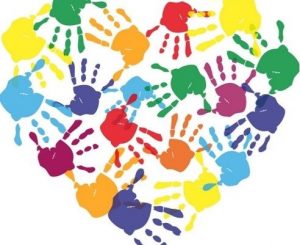Parents and children in Islam are bound together by mutual obligations and reciprocal arrangements. Hence Islam builds a family in which prevails mutual respect and care. Allah Says, “…No mother should be harmed through her child, and no father through his child…” [Quran 2: 233]
Obligations towards parents:
The Quran has made it compulsory for the child to treat his/her parents with all goodness and mercy.
Every Muslim must show goodness and mercy to his/her parents throughout their lives. There is only one exception to this, and that is, if the parents ask their children to associate anything with Allah or/and to commit sins, then the children must not obey their parents. However, in all cases, the children must show love and gratitude to their parents. They must always speak to them gently and respectfully. They must try their best to make them happy, provided they do not disobey Allah in the process.
Allah says : “But if they (both) strive with you to make you join in worship with me others of which you have no knowledge, then obey them not; but behave with them in the world kindly…”[Quran 31:15]
Being patient and tolerant with parents:
The children must take great care not to react to what their parents have to say. If parents say or do anything which is not liked or approved of by the children, then children must show patience and tolerance instead of giving vent to their anger. The children must scrupulously try to refrain from disobeying their parents since the Prophet regarded that action as one of the grave sins. Supplicating for them: Far from showing signs of displeasure, the children must pray for them saying, as Allah teaches us in the verse: “…My Lord and Sustainer! Be kind and have mercy on them as they cherished, nurtured and sustained me in childhood.” [Quran17:24]
We must continue praying for them even after they die. Such prayer will be regarded as a continuous charity as the Prophet, told us.
The greater right of the mother:
The children must be kinder and more grateful to their mothers since they took greater pains in their upbringing. That is why the Prophet emphasized that it is the mother who has the first claim on the child’s care and attention. Once a companion, may Allah be pleased with him, asked the Prophet as to whom he should show more kindness. The Prophet replied: “Your mother.” He asked who comes next and the Prophet again replied: “Your mother.” He asked the Prophet yet again who comes next. The Prophet replied: “Your mother.” When the companion, may Allah be pleased with him, asked for the fourth time, only then did the Prophet replied: “Your father.”
Recognizing their great status:
A Muslim should recognize the status of the parent and know his duties towards them. The status of parents in Islam is a status which mankind had not known before. Allah Has placed the respect for the parents just one step below the belief in Allah and true worship of Him.
Allah says : ““And your Lord has decreed that you worship none but Him. And that you be dutiful to your parents. If one of them or both of them attain old age in your life, say not to them a word of disrespect, nor shout at them but address them in terms of honor. And lower unto them the wing of submission and humility through mercy, and say: ‘My Lord! Bestow on them Your Mercy as they did bring me up when I was young’” [Quran 17: 23]
The Prophet placed kindness and respect towards parents just after the prayer offered on time as the prayer is the foundation of Islam.
‘Abdullaah Ibn Mas’ood, may Allah be pleased with him, said: “I asked the Prophet which deed is most liked by Allah? He said: ‘Prayer offered on time.’ I asked him: ‘Then what? He said: “Kindness and respect towards parents.’…” [Al-Bukhari and Muslim].
It is obedience to Allah and His Messenger . Allah says:
“And We have enjoined on man to be good and dutiful to his parents” [Quran 29:8].
Obeying and honouring one’s parents is a means of entering Paradise, as it was reported in Saheeh Muslim from Abu Hurayrah that the Prophet said: “He is doomed, he is doomed, he is doomed.” It was said, “Who, O Messenger of Allaah?” He said, “The person whose parents, one or both of them, reach old age during his lifetime but he does not enter Paradise.” (Saheeh Muslim, 4627).
Respecting and honouring them brings friendship and love.
Respecting and obeying them is a way of showing gratitude to them because they are the ones who brought you into this world. You should also show gratitude towards them for bringing you up and taking care of you when you were young. Allah says:
“And We have enjoined on man (to be dutiful and good) to his parents” [Quran 31:14]
If a person honors his parents this may be the cause of his own children honoring him. Allah says:
“Is there any reward for good other than good?’ [Quran 55:60]
Which means, if you did a good thing to others, you shall also be blessed with good things from others.
A question that one can ask has to do with the status of fathers. Personally, I do believe fathers have equal if not more power in the house. They are tribal protectors, or guardians. If mothers are the pillars of the house, then fathers are the ceiling or the bricks on which the house stands, serving as an effective shield to the whole family.
In some families, however, mothers are to be congratulated on their strong and charismatic personalities. They may prove to be far more influential than fathers if the latter are sustaining huge gaps in their day-to-day conduct inside and outside the house.
Astonishingly, in the kitchen, the mother is preparing tasty tea or coffee, cooking succulent food like soup, tagine, couscous, to mention but a handful. She is also kneeling the floor, shaping bread to round flattish loaves, baking it in the oven despite hot weather. At the supermarket, she is purchasing meat, fruits, vegetables and other needs. At school, she is the one asking about her children’s performance and grades.
At midnight, she is praying and beseeching the Lord in one corner of the house. In her leisure time, she is reading her favorite books, writing diaries and exchanging talks with her close neighbors, visiting relatives and staying up until we get in.
What about the father? he perseveres at work, doing laborious activities, all for the betterment of the family, while during prayers will be at the mosque praying and supplicating so that the family gets Allah’s blessings and nourishments.
We love them both; they are like seeds to trees for us. We must love them. They help us grow, prosper and reach heights. Honestly, we don’t know how to recompense them.
Knowing the duties towards them:
It is also the duty of the child to provide for his parents, if he/she is able to do so. The Quran sums up the whole matter in a master concept called Ihsaan, which denotes what is right, good and beautiful (i.e. showing to them kindness, compassion, gratitude, reverence and respect, praying for them and supporting them financially if they are in need.) The following is a verse that shows the significance of obedience and gratitude towards parents: Allah says : “And We have enjoined upon man [care] for his parents. His mother carried him, [increasing her] in weakness upon weakness, and his weaning is in two years. Be grateful to Me and to your parents; to Me is the [final] destination.” [Quran 31:14]
Story:
A small child got into a mosque in Paris. He had the following talk with the imam of the mosque: “My mother sent me to learn in your institute,” proclaimed the child. Being so surprised, the imam asked the child about the mother, “Sonny! Where is your mother, so that I can get some information about you from her?” The child replied innocently that the mother is waiting outside; she is not a Muslim woman. She cannot enter the mosque.
The very inquiring imam rushed to meet the mother outside. He wanted to ask for more clarification about that. Thereupon, the mother answered, saying: “I have a Muslim neighbor. When she accompanies her children to school, I noticed that they all kiss her hand. I realized that this is the secret of their happiness. O imam! I have never remarked a Muslim sending off his parents to asylums. Would you mind doing me a favor? Take this small child, instruct him on how you treat your parents. I will be very much grateful.”
The imam took the child inside the mosque and, therein, a journey of self-discovery and realization began. The child turned out to be the greatest Muslim scholar of his age.
The morale of this story is crystalline. It tells of the splendid values Islam has promoted within Muslim families. It brought lots of dignity to parents. The very harmonious kinship between the son and the parents could be guaranteed only under the umbrella of a religion that gives true value to parents.
Sons and daughters of a Muslim background will never dare think of sending one of the parents to asylums. That would be a big felony, and none is going to accept that. Parents’ place is at home with us.
We are to take charge of them until they pass away. This is more than a bank credit we need to pay back when we turn old. Every child will never accept someday to see his/her parents thrown in any nursing home to receive a special care like the disabled.
Islam taught us how to kindly treat our parents in more than one occasion. “Paradise is under mother’s feet” is one saying that turned timeless and proverbial. At a very early age, children picked up the saying to continue measuring the love they have towards mothers. Mothers have been granted a high status in Islam.
Mothers are the life blood of the Muslim society and any positive change that might occur should be attributed to them. What consolidates this view is that they have nourished us in their wombs several months and they have endured lots of pain and suffering to release us and become what we are.
In taking care of parents who took care in their upbringing etc.., Islam builds the Muslim family on mutual respect and care. Children as well as parents are bound together by reciprocal agreements that should not be violated. The two sides must treat each other with all goodness and mercy.
By/ Said Al Mufarji
|



